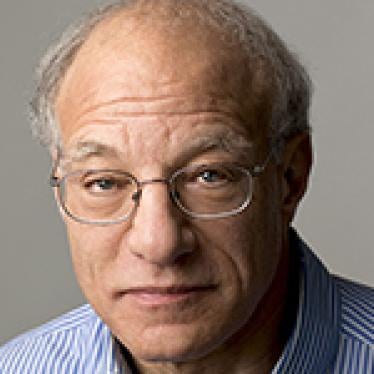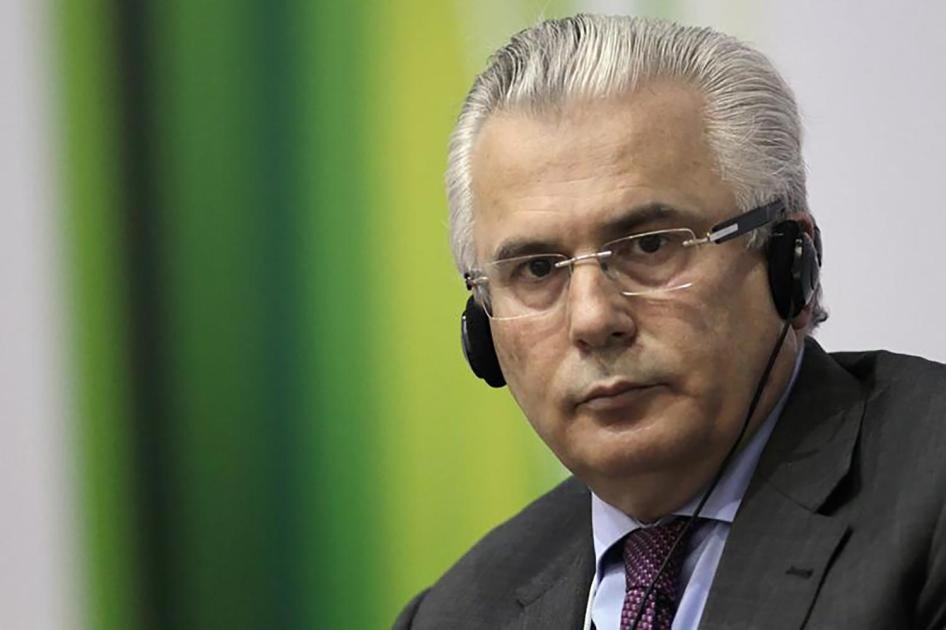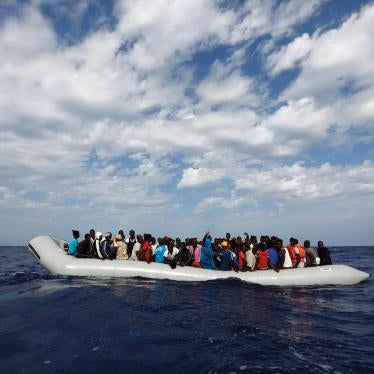Armed conflicts that have given rise to horrific war crimes in Syria, Iraq, Yemen and South Sudan are all beyond the reach of the ‘court of last resort,’ the International Criminal Court (ICC). But domestic courts in Europe are stepping into the void and giving the victims some hope.
The ICC was created to take on crimes that shocked the conscience of humankind where national courts failed to do their job. But by making consent from the states almost a necessary precondition for invoking the court’s authority, governments gave this court only limited power. With obstruction and division at the United Nations Security Council, the council was blocked from “referring” Syria to the ICC.
Near-absolute impunity has dominated on the ground at the price of unimaginable human suffering in Syria. But even with impunity ascendant there and no international court with the necessary authority available, the trials of low level armed insurgents and returning members of ISIS in the national courts of several European countries highlights an important trend. Swedish, German and French courts are using what’s known as universal or extraterritorial jurisdiction to take up cases against those believed to have committed serious crimes in Syria. This trend is especially significant when neither the ICC or the domestic courts where the crimes occurred are available.
In February, a court in Stockholm convicted a Syrian rebel of killing seven captured members of the Syrian armed forces – a war crime – in 2012 and sentenced him to life in prison. The convicted man, Haisam Omar Sakhanah, had applied for asylum in Sweden. Prosecutors used video recordings of the killings to demonstrate that, despite the defense claims that the executions followed a court verdict, the time lapse – a mere 41 hours – between apprehension, trial and execution was deemed too short to be credible.
Universal jurisdiction has come a long way since it first jolted to world attention with the detention of the former Chilean dictator Augusto Pinochet in London on an arrest warrant issued by a Spanish judge nearly 20 years ago. Its use still generates controversy, but even in the face of real setbacks in several countries, the principle has evolved into an effective legal tool in the fight against impunity. Driven by violence and slaughter, the millions of Syrian refugees who put their lives at risk in small boats and on long overland treks to reach hoped-for safety in neighboring countries and Europe have provided a powerful spur to these universal jurisdiction cases.
As they gave accounts of serious crimes they had experienced or witnessed to investigators in Sweden, Germany and France, the authorities began looking at individuals who had made their way to Europe, but who may also have been responsible for crimes in Syria. With prosecutors using their domestic laws and courts to fill the accountability void, two essential structural developments have powered this positive trend.
First, at the national level, The Netherlands, Belgium, Sweden, Switzerland, France and Germany, among others, created specialized war crimes units mandated specifically to investigate and prosecute those accused of grave crimes. The staff in these units are able to draw on institutional experience and lessons about investigating and prosecuting international crimes. This, in turn, enhances the efficiency and proficiency of investigations and allows ongoing accumulation of expertise concerning these cases. Politically, the creation of these units also conveys a national commitment to take these prosecutions seriously.
These countries had incorporated these same international crimes into their domestic law and assumed an obligation to prosecute. In the last year civil society organizations, together with Syrian activists and victims, have been working hard to bring cases to court. In March, a German civil society organization, the European Center for Constitutional and Human Rights, together with Syrian torture survivors and lawyers, submitted a criminal complaint against six high-level officials of the Syrian Military Intelligence Service to the German Federal Prosecutor. The victims said they had been tortured or witnessed torture in the prisons of the intelligence services. The prosecutor responded positively and, using the approach of “structural investigations,” took evidence from the victims even though the accused were not on German territory.
A French-based civil society group, the International Federation for Human Rights, FIDH, acting on behalf of a relative of the victims, referred the case of the forced disappearance of two Franco-Syrian nationals to the prosecutor of the specialized war crimes unit in Paris. This complaint cited a father and son who had been arrested by the Syrian Air Forces Intelligence Service in November 2013 and were never seen again. The complaint requested an immediate judicial investigation into the events of their disappearance.
But the development of the specialized units is hardly a panacea. Prosecutions by national courts using universal or extraterritorial jurisdiction face daunting obstacles. Gathering evidence in the midst of an armed conflict abroad is dangerous, expensive and time consuming. Protecting witnesses and victims and their family members is enormously difficult.
In some European countries investigators face an overwhelming flow of incoming tips and information from Syrian refugees. The units need more analysts who have expertise in Syria. They need translators to interview refugees and to reach out effectively to refugee communities. Greater outreach and information to the diaspora is necessary, but not sufficient to expand the docket from low-level suspects to former regime officials or armed forces commanders. So far, only insurgents and returning members of ISIS, relatively ‘low hanging fruit,’ have been in the dock.
The units, not surprisingly, require continued and stepped up support from their governments. This includes the funding and resources necessary to enable the investigators and prosecutors to do their job. The governments that created the units should support them and other governments should consider creating these units or comparable entities.
The second key structural development driving this trend, in dynamic synergy with the specialized units, was initiated by European Union. In June 2002, the EU Justice and Home affairs (JHA) Council called for the creation of a network of investigators and prosecutors from each member state to increase cooperation in cases of grave international crimes. In May 2003, the EU went further and called for the network to hold regular meetings. The decision also recommended that EU states set up specialized war crimes units and emphasized the importance of collaboration between national immigration and law enforcement authorities.
In the last 15 years, the network has evolved into an invaluable forum for national investigators and prosecutors to develop additional expertise, discuss their experiences, share best practices, and exchange information on specific cases. The network holds twice yearly meetings attended by delegations from nearly all EU member states plus Switzerland, Canada and the United States. Beyond the actual meetings, the network has strengthened the all-important working relationship between national war crimes units. In light of today’s events, these EU decisions, adopted at a very different international moment, seem farsighted, even visionary.
Amid conditions characterized by brutal armed conflicts with devastating effect on civilians, the European Commission also needs to go further in supporting its network. Rather than decreasing the network’s budget as it has done, the Commission should strive – even in difficult financial times – to increase funding so that its small secretariat could do more to assist the work of participating prosecutors and investigators.
With more funding the network secretariat could convene ad hoc meetings with member states that do not have specialized war crimes units to aid their national efforts. With additional funds the network secretariat could convene more meetings focused on specific countries as needed. Given a world situation marred by more crimes and more impunity, this is hardly the time to decrease resources for this network.
In sum, the individual investigators and prosecutors, the specialized units, the network and its secretariat need support – financial and institutional – now more than ever from their governments, from the European Commission, from nongovernmental organizations and refugee communities. The decisions by the EU governments to establish these units and to create a network of focal points have helped to bend the arc of history further toward justice. The scale and gravity of crimes shocking the conscience of humankind today require those in authority to strive to bend that arc even further.









